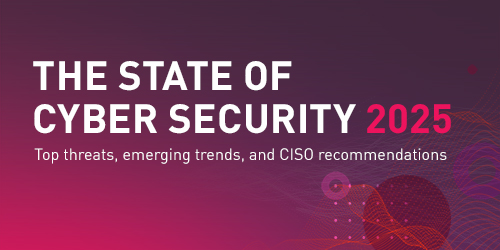What Is CSPM?
Cloud Security Posture Management provides continuous monitoring and automated enforcement of security policies across cloud infrastructure. CSPM tools analyze cloud configurations, identify vulnerabilities, and recommend remediation actions to ensure compliance with security best practices.
CSPM solutions typically cover a wide range of security technologies, including network security, identity and access management, data encryption, and threat detection.
Main Capabilities
- Configuration Auditing: CSPM tools scan cloud resources for misconfigurations that could expose vulnerabilities.
- Compliance Monitoring: CSPM tracks adherence to industry standards and regulations, such as PCI DSS, HIPAA, and GDPR.
- Vulnerability Detection: CSPM solutions identify known security flaws in cloud services and applications.
- Policy Enforcement: They automate the implementation and enforcement of security policies across cloud environments.
Pros
- Enhanced visibility into cloud infrastructure and configurations.
- Automated threat detection and response capabilities.
- Reduced risk of compliance violations and data breaches.
Cons
- Can be complex to implement and manage, requiring technical expertise.
- May require integration with multiple cloud platforms and tools.
- Offers a subset of functionality found in more comprehensive Cloud Native Application Protection Platforms (CNAPPs).
What Is DSPM?
Data Security Posture Management focuses specifically on protecting sensitive data within cloud environments. DSPM solutions rely on a wide range of techniques to discover, classify, and secure data assets. This ensures those assets are adequately protected against unauthorized access, use, or disclosure.
Main Capabilities
- Data Discovery: DSPM tools identify and catalog sensitive data across various cloud services and applications.
- Data Classification: They categorize data based on its level of confidentiality.
- Access Control: DSPM solutions enforce granular access controls to limit data exposure to authorized personnel only.
- Threat Detection: They monitor for suspicious activities related to sensitive data, such as unauthorized downloads or modifications.
Pros
- Enhanced protection of sensitive data assets.
- Improved compliance with data privacy regulations.
- Reduced risk of data breaches and regulatory fines.
Cons
- Can be challenging to implement effectively across complex cloud environments.
- Requires ongoing monitoring and maintenance to ensure accuracy and effectiveness.
3 Key Differences Between CSPM and DSPM
While both CSPM and DSPM play important roles in securing cloud environments, their core functionalities and target areas differ significantly.
- Focus: CSPM adopts a broader perspective. Its purpose is to establish and maintain a robust overall security posture across the entire cloud infrastructure. In contrast, DSPM focuses specifically on protecting sensitive data assets within those environments.
- Scope: CSPM solutions typically encompass a wider scope, analyzing configurations, identifying vulnerabilities, and enforcing policies across various cloud services, networking components, and applications. DSPM, on the other hand, concentrates its efforts on data-centric aspects, such as discovery, classification, access control, and threat detection related to sensitive information.
- Use Cases: CSPM proves valuable for organizations seeking to achieve compliance with industry regulations and maintain a strong general security posture across their cloud infrastructure. DSPM is more relevant in sectors that require strong security measures when handling highly sensitive data, such as healthcare, finance, and government.
Understanding these key distinctions allows organizations to choose the most appropriate solution to address their specific cloud security needs.
The Risks of Not Having CSPM or DSPM
Neglecting cloud security posture management can expose organizations to a number of risks with potentially devastating consequences.
- Data Breaches: Without robust CSPM and DSPM solutions, sensitive data becomes vulnerable to breaches. Attackers could exploit misconfigurations, vulnerabilities, or weak access controls to steal valuable information, leading to financial losses, reputational damage, and legal repercussions.
- Compliance Violations: Many industries are subject to regulations regarding data protection. Failure to implement adequate security measures can result in fines, legal penalties, reputational damage, and a loss of customer trust.
- Exploitable Vulnerabilities: Complex cloud environments have vulnerabilities that attackers can exploit. Without CSPM’s continuous monitoring and vulnerability detection capabilities, these weaknesses could remain unpatched, providing attackers with an entry point to compromise sensitive data or critical systems.
The lack of comprehensive cloud security posture management creates a dangerous environment for organizations. Failure to adequately defend against cyber threats can potentially lead to significant financial, legal, and operational harm.
Which One to Choose?
Choosing between CSPM and DSPM depends on the organization’s specific needs and priorities. Carefully evaluate factors such as:
- Data Sensitivity: Organizations handling highly sensitive data, such as personally identifiable information (PII) or financial data should prioritize DSPM to ensure robust protection of these assets.
- Regulatory Requirements: Industries with stringent data privacy regulations like healthcare or finance may require both CSPM and DSPM to meet compliance obligations.
- Cloud Infrastructure Complexity: Complex cloud environments with multiple services and applications benefit from CSPM’s comprehensive visibility and control capabilities. The question of whether CNAPPs vs CSPMs provide better overall security coverage is also worthy of further exploration.
- Existing Security Controls: Organizations with mature security programs might leverage CSPM to enhance their existing controls, while those lacking robust data protection measures should prioritize DSPM.
CSPM generally provides the foundational layer of security posture management, while DSPM focuses on the task of safeguarding sensitive data within that environment. Organizations can effectively secure their cloud environments by considering which factors address their specific needs.
Integrating Both Solutions
Implementing CSPM and DSPM solutions together leads to increased security for cloud environments, with several key benefits:
- Enhanced Visibility: Organizations can derive value from integrating multiple solutions, ultimately leading to a more comprehensive understanding of their cloud environments. CSPM provides insights into infrastructure configurations and vulnerabilities, while DSPM increases visibility into data flow, access patterns, and threats to sensitive information.
- Improved Threat Detection and Response: A collaborative approach allows for quicker incident response and mitigation. CSPM can identify suspicious activities across the cloud infrastructure, while DSPM focuses on anomalies and potential data exfiltration attempts.
- Streamlined Security Operations: Integrating CSPM and DSPM reduces operational complexity by centralizing security management, policy enforcement, and threat intelligence. This simplifies workflows and improves overall efficiency.
Breaking down barriers between data protection and infrastructure security enables organizations to develop a stronger, more cohesive approach to cloud security.
Maximize Security with CloudGuard CSPM from Check Point
Both CSPM and DSPM protect cloud environments, but each has unique characteristics. CSPM focuses on identifying, assessing, and remediating security threats in cloud environments, while DSPM secures sensitive data assets throughout their lifecycle. Check the 2025 Cloud Security Report to learn more about the types of threats CSPM and DSPM protect against.
Need further insight to make the right cloud security decisions for your organization? Review the Cloud Security Buyer’s Guide for recommendations on how to best evaluate a cloud security platform.
CloudGuard CSPM provides a flexible framework for managing and monitoring cloud security effectively, enabling security measures to safeguard against threats and vulnerabilities throughout the lifecycle of cloud resources. Check Point’s CloudGuard CSPM solution leverages advanced technologies to deliver effective threat prevention, vulnerability management, runtime protection, and code security capabilities. You’re welcome to schedule a demo of CloudGuard CSPM and discover how Check Point can help you build a more resilient and secure cloud infrastructure.





